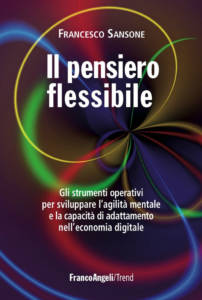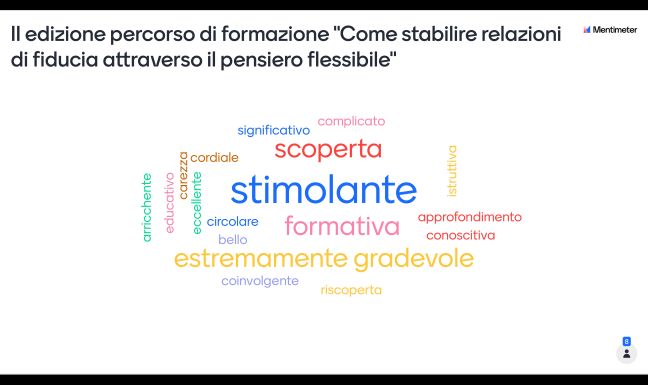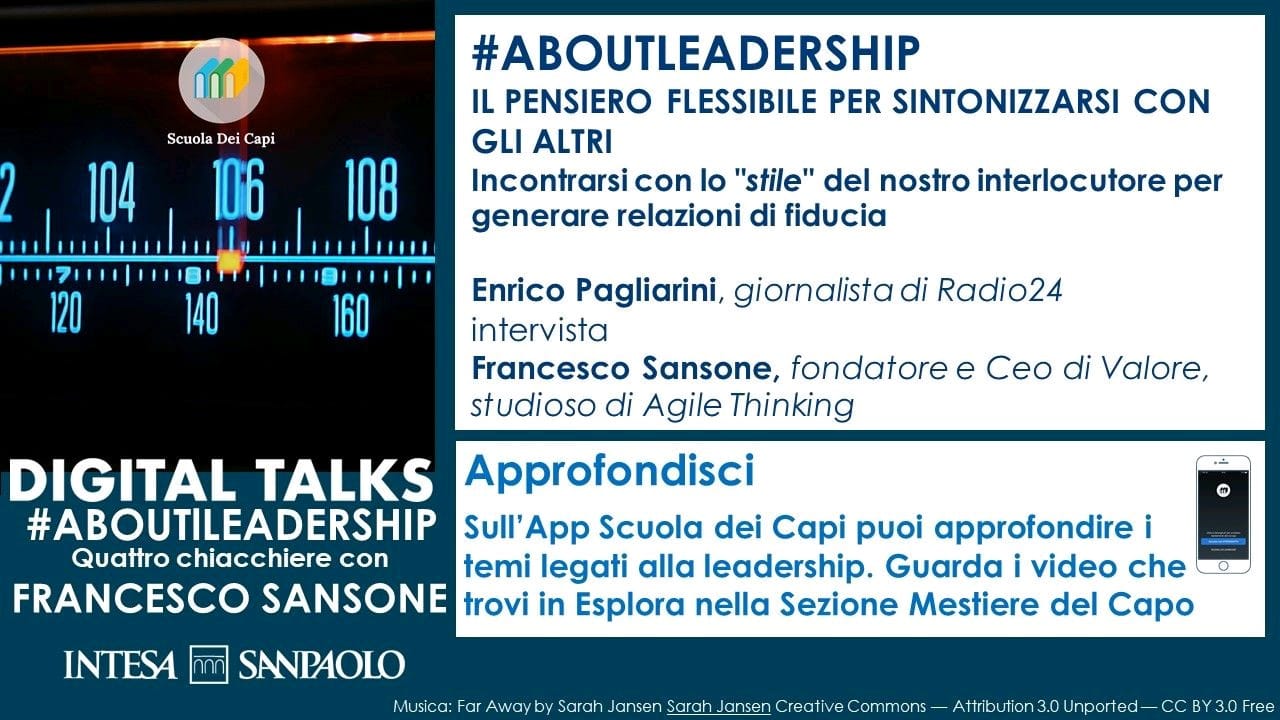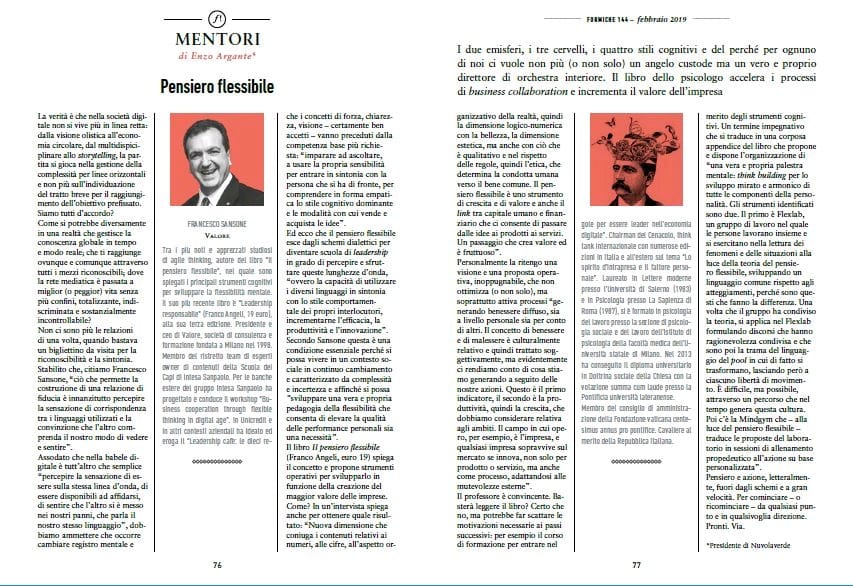How to build a relationship of trust througt Flexible Thinking
Three live and interactive webinars with the teacher Francesco Sansone, President & CEO of Valore. During the three sessions “Flexible Thinking” will be studied in depth and this is the main tool for building genuine and effective relationships of trust.
In this training course you will learn to: discover what it is and how to develop flexible thinking; understand which is your dominant cognitive style and that of your interlocutors; manage communications with your interlocutors, establishing harmony and relationships of trust; develop skills of communication agility to improve the quality of relationships.
AIMS
In this training course you will learn to: discover what FT is and how to develop ITS; understand which is your dominant cognitive style and that of your interlocutors; manage communications with your interlocutors, establishing harmony and relationships of trust; develop skills of communication agility to improve the quality of relationships.
1st MEETING
In the first SESSION, the following issues will be addressed:
- What is Flexible Thinking and how it works
- The two hemispheres
- The three brains
- The four cognitive styles.
2nd MEETING
In the second meeting the following topics will be illustrated:
- How to recognize your dominant style
- Objectify, Structure, Anticipate, Feel.
3rd MEETING
In the third and final meeting:
- Exercises for the development of Flexible Thinking
- Role playing.
Flexible Thinking: for a sustainable growth and innovation through people
 Flexible thinking makes it possible to solve complex problems, that is to say problems characterized by an ensemble of apparently disconnected facts and information which require the application of logical and critical analysis instruments, but also of intuitive and emotional tools in order to manage the complexity of the relationship effectively.
Flexible thinking makes it possible to solve complex problems, that is to say problems characterized by an ensemble of apparently disconnected facts and information which require the application of logical and critical analysis instruments, but also of intuitive and emotional tools in order to manage the complexity of the relationship effectively.
Cognitive flexibility (flexibilitas in latin means elasticity) is the ability to think using all the means afforded by the personality by using different “categories” according to the different counterparts and situations. A significant contribution to the study of cognitive and communication processes has been given in recent years by behavioural sciences, whose results have been used only partly to improve the quality of life and the effectiveness of trust in relationships.
The extreme frontier of sciences, maybe the most interesting, is the understanding of the biological grounds of awareness and of the mental paths which make it possible for us to act, perceive, learn and remember. The central doctrinal nucleus which emerges from modern neuroscience studies can be summarized in the statement that each behaviour is the expression of a cerebral function. What we generically call “mind” can be considered as the result of a combination of cerebral functions.
The choice of cognitive and relational tools depends on their knowledge according to an original and innovative model on the Flexible Thinking.






